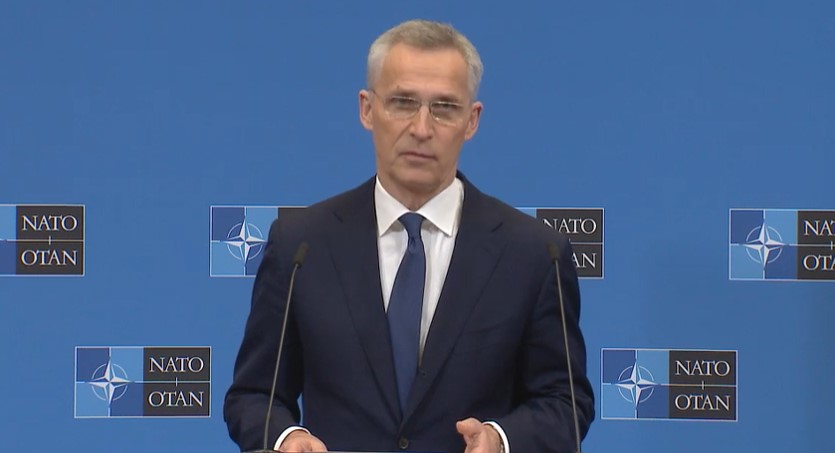The NATO summit on Thursday was prolonged by an hour, as leaders from all member countries came together to discuss their response to Russia’s invasion of Ukraine. Secretary-General Jens Stoltenberg presented the outcome of the meeting, stating that NATO will double its efforts.
Doubled efforts
NATO pledged to double its efforts in the pledge made in 2014, which includes four new battle groups in Bulgaria, Hungary, Romania and Slovakia. These are in addition to the four already present in Baltic countries and Poland, amounting to a total of eight NATO battle groups from the Baltic to the Black Sea.
100,000 US troops are also supporting NATO efforts, and European allies and Canada have also stepped up; there are 40,000 forces under direct NATO command, mostly in the eastern part of the alliance.
These are backed by major air and naval power, including “unprecedented five carrier strike groups” from the High North to the Mediterranean.
“We are delivering a lot of equipment, but I cannot go into details for operational reasons,” Stoltenberg said. “NATO allies have stepped up which is essential for the progress Ukraine has made.”
NATO allies are also coordinating efforts when it comes to energy security by stepping up supplies, diversifying sources, and reducing members’ dependence on Russia.
Long-term
Leaders also agreed to reset deterrence and defence for the longer term to face a new security reality, with more forces on land in the eastern part of the alliance, more jets and strengthened integrated air and missile defence and carrier strike groups, submarines and combat ships at sea.
The leaders decided to strengthen their cyber defences and focus on collective defence. Stoltenberg expects to provide more details at the next summit in Madrid in June.
Related News
- NATO summit: Chemical weapons, cyber attacks and drones are major concerns
- Up to 15,000 Russian soldiers dead in Ukraine, NATO says
- EU delays decisions on support to Ukraine fighting for its existence
The far East
NATO also appeals to China, as allies call on the country to refrain from supporting Russia both economically and militarily.
When asked what NATO will do in the case China does support Russia, Stoltenberg answered: “Our message is for China to join the rest of the world and not support Russia in any way. Instead, Beijing should promote an immediate peaceful solution.”
Stoltenberg also called on Belarus to stop acting as an accomplice to Russia’s invasion.

